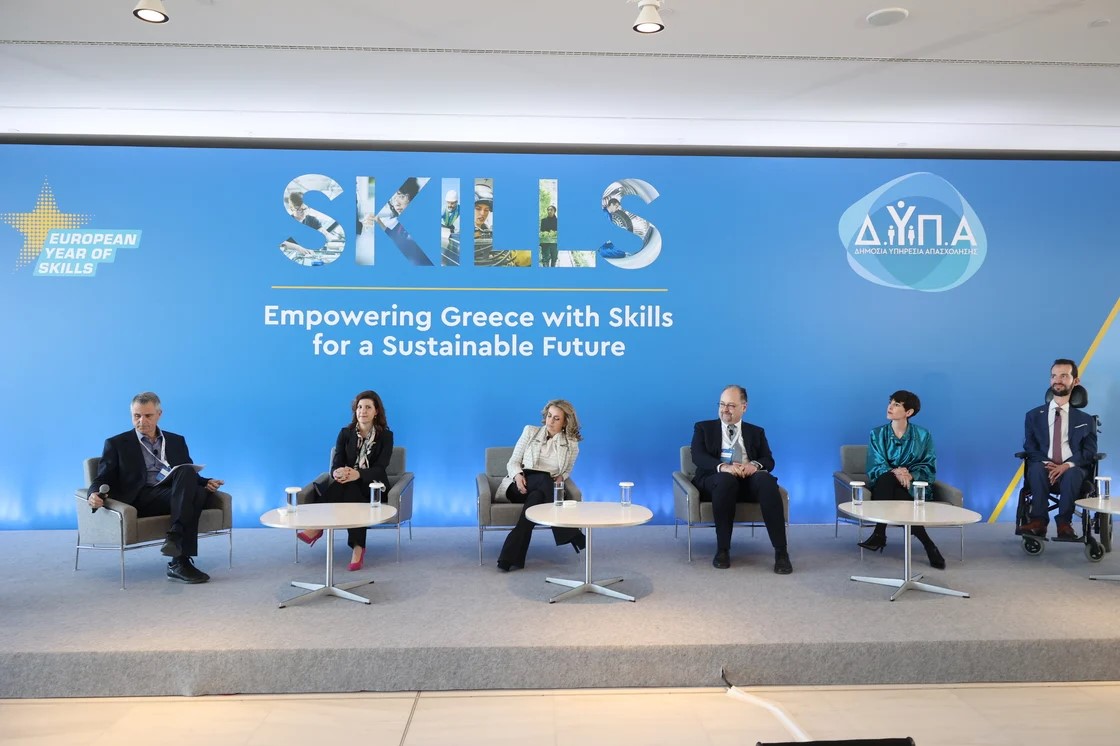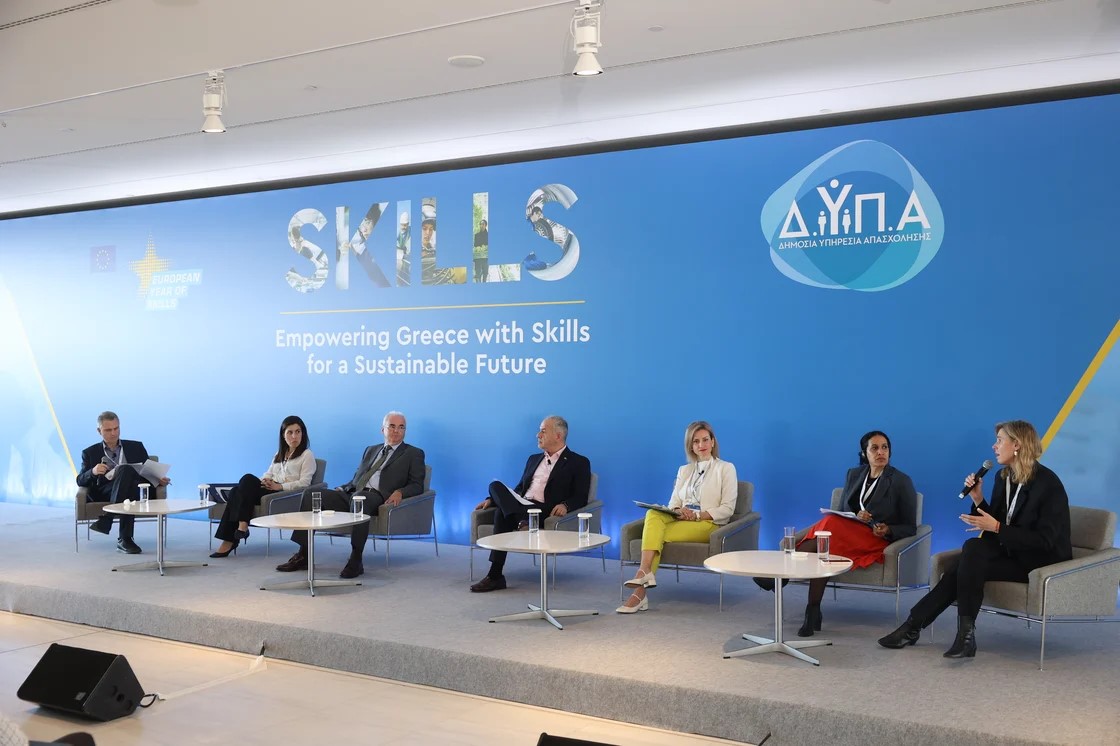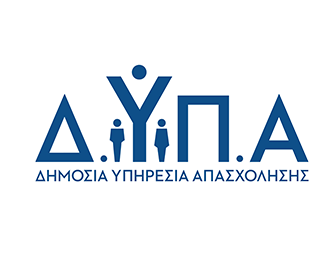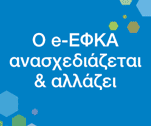The national goal of upgrading VET – The importance of lifelong learning
The national goal of upgrading VET – The importance of lifelong learning
The importance of linking the educational system to the labour market with a view to upgrading VET was highlighted during DYPA’s recent event for the European Year of Skills: "Empowering Greece with Skills for a Sustainable Future".
"So far, Vocational Education has not featured prominently in the discussion about education. Yet it is a subject directly connected to both the educational system and the labour market", said Ioanna Lytrivi, Deputy Minister of Education, who subsequently stressed how important it is for all parties involved in VET to work together. "This is our only chance to make progress; indeed, it is a national goal" she added, explaining that all tiers of education should embark on a dialogue with all the labour market stakeholders, employees and employers. “Some progress has been made”, she stated, “with all interested parties participating in the dialogue, yet not communicating as effectively as they should”. Ioanna Lytrivi also mentioned the new law on VET, providing for a single centre, one Career Office, which aspires to become the communication channel between education and the labour market.
During the discussion, which was coordinated by Huffingtonpost.gr reporter Antonis Fourlis, Christos Ioannou, Advisor to the Board of the Hellenic Federation of Enterprises (SEV), pointed out that Greek businesses are fully aware of the ongoing changes and that Greece needs evidence-based knowledge of the current labour market trends and needs so that the educational system can respond adequately. "A lot remains to be done. If we want to make significant progress, we should effectively devote a decade to education," stated Christos Ioannou, and he went on to suggest that technology can help even the least trained person to upskill quickly. “Since we already have knowledge, what we now need are skills, networking and a common language so that we can take the next step”.
Christos Goulas, General Director of the Labour Institute of GSEE (General Confederation of Greek Workers), referred to a dichotomy existing between workers. On the one hand, there are those who are overeducated and are constantly pursuing new qualifications; on the other hand, there are those who are undereducated, underqualified and thus essentially excluded from training programmes. He stated that employees do realise that they need to invest in themselves but they are also in need of public lifelong learning institutions and a major shift in the culture of businesses, which should ensure that their employees are trained and upskilled. Christos Goulas finally added that Greece is on the top of the list of countries with the highest numbers of working hours in the private sector, also offering low wages and scarce incentives for employees to participate in training programs.
Eugenia Bozou, Head of Government Affairs and Public Policy at Google Greece, Cyprus, Malta, stressed that there are four reasons why the co-operation of businesses with the Ministry of Education is so important: firstly, the Ministry has a good understanding of current needs; secondly, better results are achieved through co-operation; thirdly, no one can make it on their own; lastly, programmes provided under a ministerial aegis always carry greater credibility. "In the specific case of Greece special emphasis should be placed on SMEs", added Eugenia Bozou.
El Liza Mohamedou, Head of the OECD Center for Skills, also placed particular emphasis on SMEs, which are usually faced with greater difficulties. She stated that VET programmes should target those with the lowest skills, also noting that there are many obstacles to the integration of migrants into the labour market and, moreover, that suitable policies for education and training are currently necessary, as is the beginning of lifelong learning from an early age.
Anastasia Pouliou, Expert in Qualifications and Credentials – Future of VET, CEDEFOP, claimed that the issue of upskilling concerns us all, which not everyone can readily accept. She stated that, while young people search for upskilling opportunities, older people find it hard to understand what is actually required of them. She also added that all the parties involved have realised the need to create ‘microcredentials’: a folder containing not only a person’s degree but also the skills s/he has developed.
In his own address, Nicolas Schmit, European Commissioner of Jobs and Social Rights, stressed that countries need to invest in a skilled labour force. He added that the European Commission has taken initiatives with a clear strategy and has also set a social target of 60% of adults participating in training every year by 2030. "The Recovery and Resilience Fund will provide funds amounting to 3,5 bn euros to Greece for the development and strengthening of skills" stated Mr. Schmit.
Antonis Fourlis, Huffingtonpost.gr reporter, subsequently coordinated a discussion on skills development for an accessible and inclusive workplace. According to Stelios Kymbouropoulos, MEP (European People's Party), an employee's priority is to be trained so that s/he can accept and work with people who are different in his own eyes. "We should integrate the notion of otherness into the very concept of culture. Each business should be open to otherness, refrain from imposing superfluous criteria, pursue flexible policies and offer equal opportunities to disabled people".
Kymbouropoulos also stressed that it is necessary to enrich skills, expand the human capital pool and radically change the way talent is perceived. "We need zero discrimination policies; we need to enforce the law on equal access to work; we need to start believing, from a very early age, in each human being’s uniqueness and capability in the right environment" .
Niki Dandolou, Special Secretary for ESF Programmes, Ministry of Economy and Finance, pointed out that adaptability does have a significant impact on skills development. She also added that 40% of adults in Greece will participate in training every year by 2030. "Lifelong training is a necessity if we wish to adapt to both the current and future worlds".
Sofia Efraimoglou, President of the Athens Chamber of Commerce and Industry (ACCI), noted that, while the unemployment rate in Greece is dropping, women's unemployment rate is still quite high and women still have limited access to start-up entrepreneurship. “Quotas do contribute to attaining our goal”, said Sofia Efraimoglou, also stressing that ACCI is going to implement a training programme for women aged 45+, aiming to reintegrate them into the labour market, and, moreover, an upskilling programme for unemployed women.
Katerina Papanikoloaou, Senior Manager at PwC, highlighted the significance of working together, focusing on both visible and invisible diversity. "There is ample talent, which, however, businesses are sometimes not ready to capitalise on. It is very important to embrace the diversity of thought and perspective of every single employee in a business" she said. We still have a long way to go, said Katerina Papanikolaou, and there are plenty of things to do to attain our goal.
Lastly, Athanasios Patsakas, Senior Sales Leader for Amazon Greece, Cyprus and Malta, noted that research has shown that employees perform better when they feel included, when they share a feeling of belonging. "This type of corporate culture is important but we also need to create the environment what will promote this culture".
For further information about the event click here:
https://year-of-skills-greece.gr/
For further information about the actions implemented by DYPA within the framework of the European Year of Skills click here:
https://www.dypa.gov.gr/europeanyearofskills
Click here to download the Press Release
























